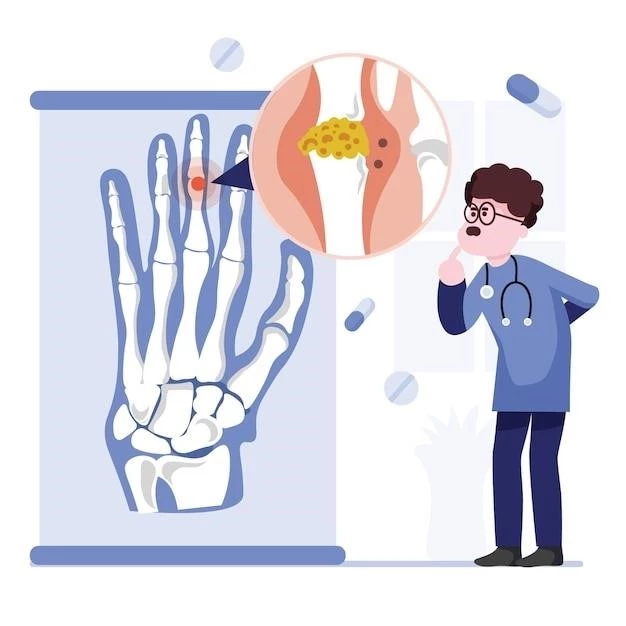Article Plan⁚ Disease ― Yoshimura–Takeshita Syndrome
Introduction

The Yoshimura-Takeshita Syndrome, also known as Central Nervous System Calcification-Deafness-Tubular Acidosis-Anemia Syndrome, is a rare genetic disorder characterized by progressive calcification of the brain and spinal cord, along with developmental anomalies like growth retardation and psychomotor issues. This syndrome also presents symptoms such as deafness, anemia, and renal tubular acidosis in some cases. Research and studies in this field focus on understanding the molecular mechanisms underlying the dysregulation of B cell subpopulations, which play a crucial role in the pathogenesis of certain autoimmune diseases like primary Sjögrens syndrome. Specialists have also explored the association of specific transcriptional and protein modules with activated CD8 T cells in primary Sjögrens syndrome, shedding light on the immune dysregulation in this condition. Support groups and resources are available for individuals affected by rare diseases like the Yoshimura-Takeshita Syndrome, providing a platform for sharing information and offering support to patients and their families.
Overview of Yoshimura–Takeshita Syndrome
The Yoshimura-Takeshita Syndrome, also known as Central Nervous System Calcification-Deafness-Tubular Acidosis-Anemia Syndrome, is a rare genetic disorder characterized by progressive calcification of the brain and spinal cord. Individuals with this syndrome may experience growth retardation, psychomotor anomalies, deafness, and anemia. Renal tubular acidosis is also a potential manifestation of this condition. Research has shown that specialists investigating this syndrome have delved into the dysregulation of B cell subpopulations and specific transcriptional and protein modules associated with activated CD8 T cells. Understanding the molecular mechanisms underlying these dysregulations is crucial for comprehending the pathogenesis of this syndrome. It is vital for individuals affected by Yoshimura-Takeshita Syndrome to access support groups and resources tailored to rare diseases, providing them with valuable information and emotional assistance.
Causes and Risk Factors
The exact causes of Yoshimura-Takeshita Syndrome, also known as Central Nervous System Calcification-Deafness-Tubular Acidosis-Anemia Syndrome, are still being studied. It is believed to be a rare genetic disorder with complex molecular mechanisms that lead to the progressive calcification of the brain and spinal cord. Risk factors for this syndrome may include genetic predispositions that can result in the dysregulation of B cell subpopulations and the interference with specific transcriptional and protein modules associated with activated CD8 T cells. Since this syndrome is rare and not fully understood, further research is needed to elucidate the precise genetic and environmental factors contributing to its development.
Symptoms and Clinical Presentation

Common symptoms of Yoshimura-Takeshita Syndrome, also known as Central Nervous System Calcification-Deafness-Tubular Acidosis-Anemia Syndrome, include progressive calcification of the brain and spinal cord leading to developmental anomalies like growth retardation and psychomotor issues. Additionally, individuals may experience symptoms such as deafness, anemia, and in some cases, renal tubular acidosis. The clinical presentation can vary, but it is essential for healthcare providers to consider the combination of these symptoms when diagnosing and managing individuals with this rare genetic disorder.
Diagnosis and Differential Diagnosis
Diagnosing Yoshimura-Takeshita Syndrome, also known as Central Nervous System Calcification-Deafness-Tubular Acidosis-Anemia Syndrome, can be challenging due to its rarity and complex nature. Healthcare providers may use a combination of genetic testing, imaging studies to assess calcification in the brain and spinal cord, blood tests to check for anemia and renal function, and evaluations of hearing loss and psychomotor development. It is essential for healthcare professionals to differentiate this syndrome from other conditions presenting with similar symptoms, such as metabolic disorders or autoimmune conditions, to ensure accurate diagnosis and appropriate treatment.
Treatment Approaches
When addressing Yoshimura-Takeshita Syndrome, also known as Central Nervous System Calcification-Deafness-Tubular Acidosis-Anemia Syndrome, treatment approaches aim to manage symptoms and improve quality of life. While there is no cure for this rare genetic disorder, treatment may involve a multidisciplinary approach focusing on symptom management. Healthcare providers may recommend interventions such as supportive therapies for hearing loss, addressing anemia, managing renal tubular acidosis, and providing developmental support for psychomotor anomalies. Patients and their families should work closely with healthcare professionals to create a personalized treatment plan that addresses their specific needs and optimizes their overall well-being.
Management and Care Strategies
When it comes to managing and caring for individuals with Yoshimura-Takeshita Syndrome, a multidisciplinary approach is essential. As this syndrome is rare and complex, healthcare providers often focus on symptom management to improve the quality of life for affected individuals. Supportive therapies may be recommended to address specific symptoms like hearing loss, anemia, and renal tubular acidosis. Additionally, developmental support for psychomotor anomalies plays a crucial role in enhancing the well-being of patients. It is important for healthcare professionals to work closely with patients and their families to tailor a care plan that meets the unique needs of the individual.
Prognosis and Complications
Patients with Yoshimura-Takeshita Syndrome face a challenging prognosis due to the rare and complex nature of the condition. The progressive calcification of the brain and spinal cord, along with developmental anomalies and other symptomatic manifestations, can impact the quality of life for individuals affected by this syndrome. Complications may arise from the multi-system involvement of the disorder, including issues related to growth retardation, psychomotor anomalies, deafness, anemia, and renal tubular acidosis. It is essential for healthcare providers and caregivers to offer comprehensive care and support to manage these complications and optimize the long-term outcomes for patients.
Research and Studies
Specialists have conducted valuable research and studies into the pathogenesis of diseases like Primary Sjögrens Syndrome and Central Nervous System Calcification-Deafness-Tubular Acidosis-Anemia Syndrome. Investigations focus on the dysregulation of B cell subpopulations and activation of CD8 T cells, providing insights into autoimmune mechanisms underlying these conditions. Moreover, researchers have received grants to further explore the molecular mechanisms associated with these syndromes, aiming to enhance diagnostic and treatment approaches. Clinical trials and collaborative efforts have been pivotal in advancing the understanding of these complex diseases, offering hope for improved management strategies in the future.
Support Groups and Resources
For individuals diagnosed with rare conditions like Yoshimura-Takeshita Syndrome, it can be beneficial to connect with support groups and utilize available resources. These groups offer a platform for sharing experiences, information, and emotional support with others facing similar challenges. Support organizations specific to Central Nervous System Calcification-Deafness-Tubular Acidosis-Anemia Syndrome provide valuable insights and help patients and families navigate the complexities of the condition. By joining these communities, individuals can access guidance, education, and a sense of community that may aid in coping with the impact of the syndrome.
Conclusion
In conclusion, understanding and managing conditions like Yoshimura-Takeshita Syndrome, also known as Central Nervous System Calcification-Deafness-Tubular Acidosis-Anemia Syndrome, require a multidisciplinary approach that addresses the complex nature of the disorder. Research into genetic mechanisms, dysregulation of immune cells, and molecular pathways plays a crucial role in advancing diagnostic and treatment strategies for rare diseases. Support groups and resources serve as valuable platforms for individuals and families affected by these syndromes, offering much-needed support, information, and a sense of community. By fostering collaboration between researchers, healthcare providers, and patient support networks, we can strive for improved outcomes and better quality of life for those living with these challenging conditions.
